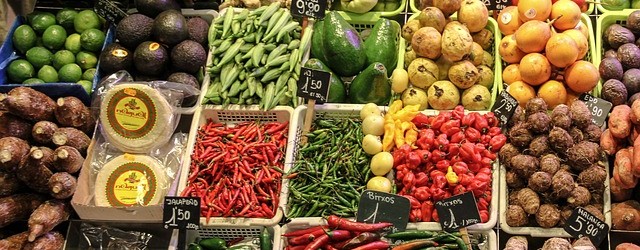
The legend of King Midas is used to show the folly of valuing one form of riches to the exclusion of others. When Dionysus granted Midas his wish that everything he touched turned to gold, the king soon discovered that everything he tried to eat turned into the metal. Whether or not the policymakers of the UAE are familiar with Greek mythology, their attitude towards food security shows they are keenly aware of the fable’s cautionary principle.
The UAE is, of course, blessed with vast oil reserves but that commodity cannot in itself sustain the country except by providing the means to buy food from less arid regions or to artificially foster agriculture here using desalinated water. The population now is 7.9 million people but before oil was discovered and exported, the Trucial States sustained fewer than one million people.
The issue was quantified recently when the UAE was included for the first time in the The Economist Intelligence Unit’s Global Food Security Index, which put it in 30th place of 109 countries assessed. The score was based on three factors: food affordability, food availability and quality and safety.
However, that kind of standardized assessment does not sit comfortably with the unique situation here. The UAE received the lowest possible score for its investment in agriculture research and development, but the challenge is not improving local agricultural practices but, in ensuring the security of the supply chain, both from farms owned by the UAE in Africa, Europe and Asia and from external suppliers.
Although experiments have been held in Abu Dhabi in the last two years for the most suitable variety of wheat for local conditions, one need only look at a similar programme in Saudi Arabia, that depleted its groundwater to produce wheat at several times the price it would have cost, to import on the open market.
There is also a bigger issue that is not reflected in the food security score. By operating farms in places like East and North Africa, the UAE not only gains food security based on much more favourable conditions for agriculture but, is also able to introduce highly-efficient practices to countries, thanks to its understanding of the culture of the region that in many places are struggling to develop beyond subsistence agriculture.
It can do this in a more ethical and sustainable way than many other global agribusinesses. This would be a truly virtuous circle in which each side benefits.
Source: The National UAE
You must be logged in to post a comment.